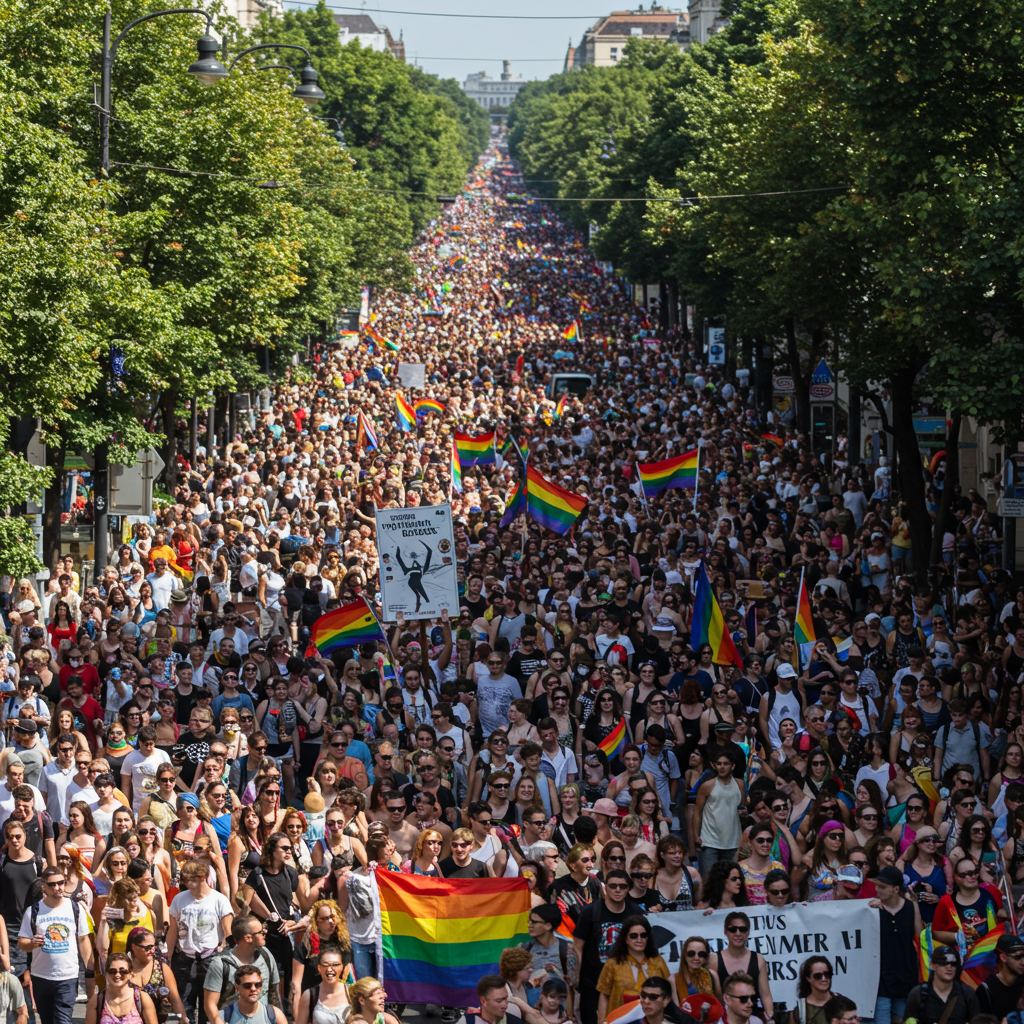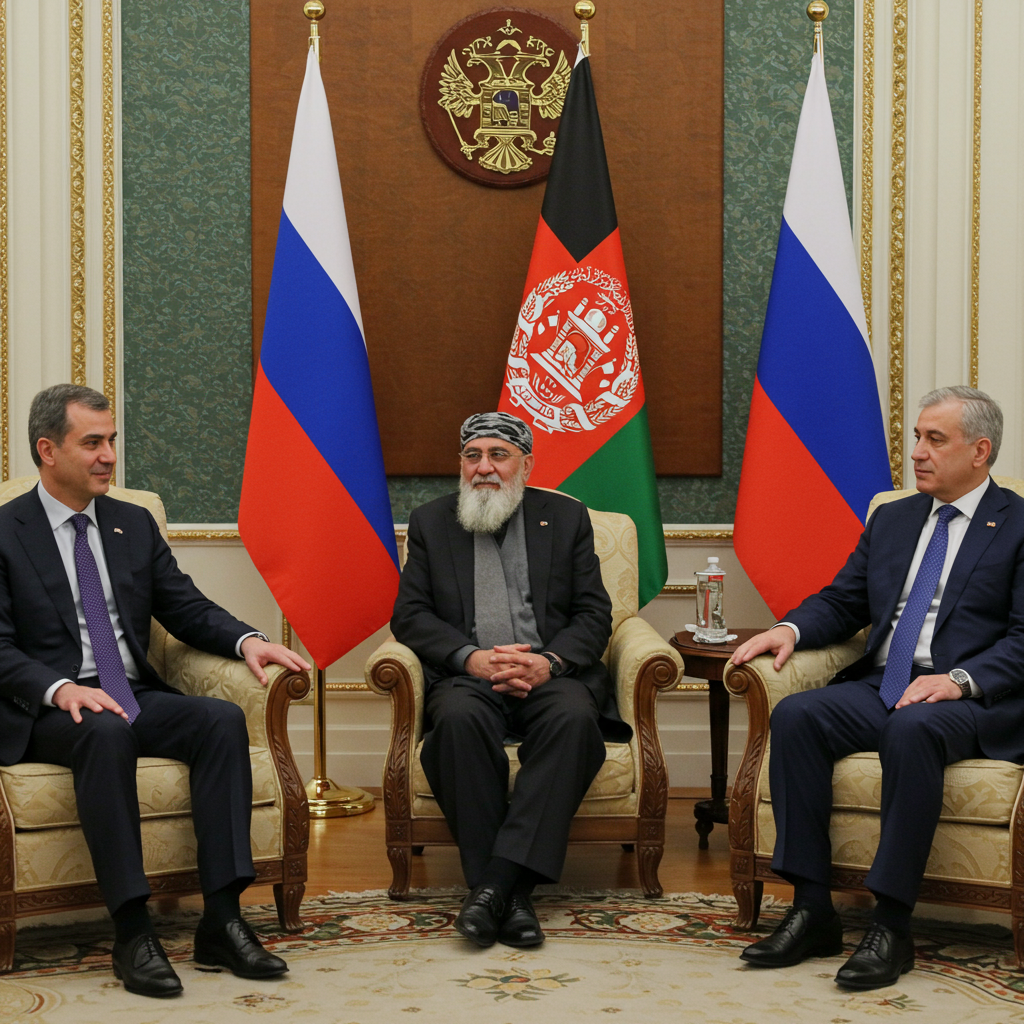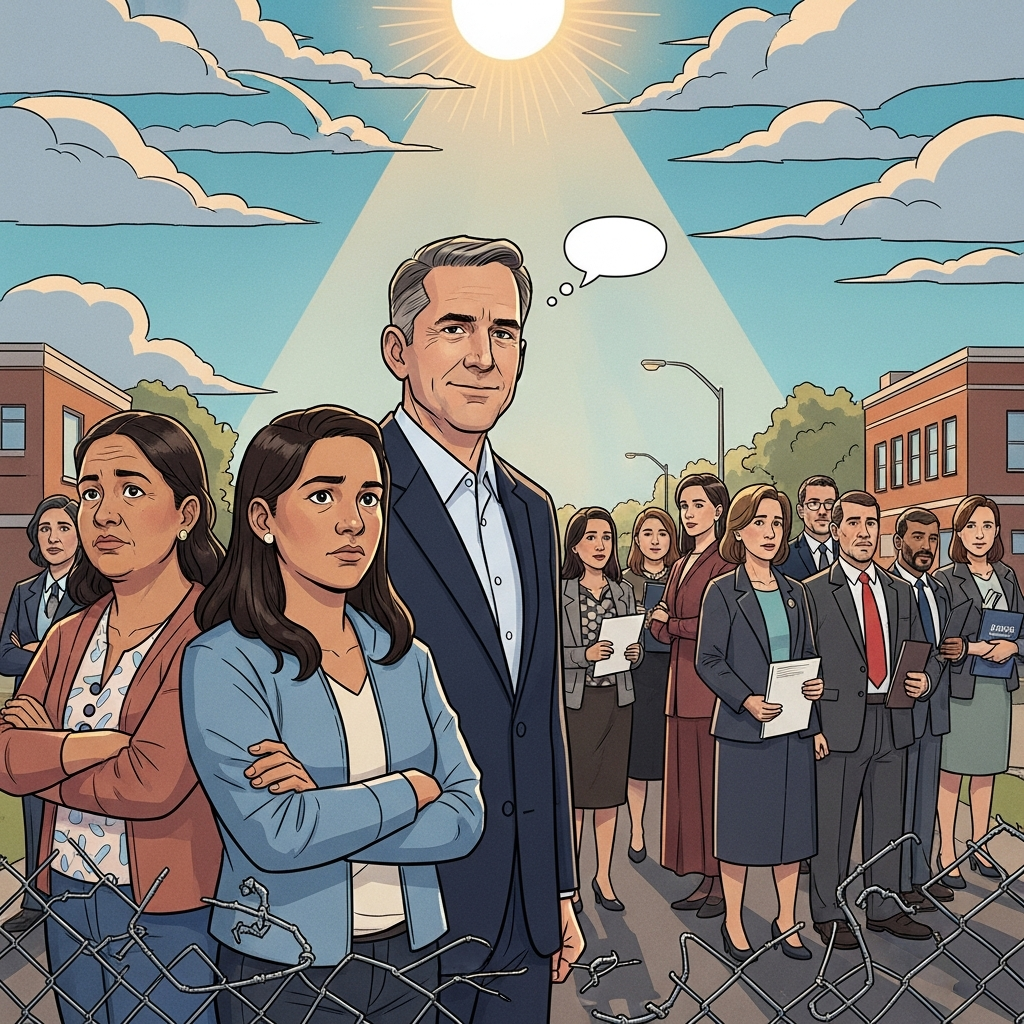Budapest, Hungary – In a powerful display of defiance and solidarity, an estimated hundred thousand people flooded the streets of Budapest for the annual pride march. This massive turnout directly challenged a government ban and stern warnings from Hungarian Prime Minister Viktor Orbán’s administration. The event, the 30th Budapest Pride, became the largest in its history, underscoring a growing resistance to the government’s increasingly restrictive policies targeting the LGBTQ+ community and civil liberties.
The demonstration unfolded on a Saturday afternoon, moving from City Hall Park, across the iconic Erzsébet Bridge, and culminating near the University of Technology. Despite the explicit government prohibition, police were present along the route. Notably, they did not physically intervene to halt the march but did manage crowd flow, including diverting participants away from a small group of far-right counterprotesters. Marchers carried a vibrant array of rainbow flags, alongside banners critical of the government, creating a palpable atmosphere of resilience and hope. Speeches, music, and even creative satirical displays, like images of Prime Minister Orbán depicted in drag, marked the day’s events, which concluded with a celebratory gathering.
Understanding Hungary’s Ban on Pride
The backdrop to this massive show of force is a controversial law enacted rapidly by Orbán’s ruling party earlier this year. Presented under the guise of “protecting children,” the legislation effectively banned Pride marches and other events perceived as promoting homosexuality to minors. This move is widely seen by critics, both domestically and internationally, as a pretext for a broader erosion of democratic freedoms and a direct attack on the rights of the LGBTQ+ community.
The law carried significant risks for those involved. Participants faced potential fines of up to 200,000 Hungarian forints, roughly equivalent to €500 or $586. Organisers faced even graver consequences, including the possibility of a one-year prison sentence. Adding to the climate of intimidation, the legislation permits police to deploy facial recognition technology to identify individuals attending the banned events, raising serious privacy concerns among human rights groups. Prime Minister Orbán himself acknowledged the police’s authority to disperse the march but indicated physical force would be avoided, while still warning of inevitable “legal consequences.”
Political Maneuvering and Opposition
The decision by Budapest Pride organizers to proceed, despite the government’s explicit prohibition and the associated legal threats, was a calculated act of defiance. They received backing from numerous human rights organizations, dozens of Members of the European Parliament (MEPs), and officials from other European nations. Liberal Budapest Mayor Gergely Karácsony attempted to circumvent the ban by declaring the event a municipal gathering, arguing this designation would exempt it from the assembly law cited by police. However, the government maintained its stance that holding the march, even under city sponsorship, remained unlawful, with the justice minister warning Mayor Karácsony about the potential for a one-year prison sentence for encouraging attendance.
The political dimension of the march is impossible to ignore. It occurs ahead of crucial elections next year, where Orbán’s Fidesz party faces a significant challenge from a rising opposition force, particularly the center-right Tisza party led by Peter Magyar. Some analysts suggest that by making the Pride march a flashpoint, the Orbán government sought to regain political initiative and mobilize its conservative base. However, the unprecedented turnout suggests this tactic may have backfired, instead galvanizing opposition and highlighting the government’s repressive measures on a global stage. While the Tisza party reportedly avoided taking a strong stance specifically on LGBTQ+ issues, its press office called on authorities to protect attendees against arbitrary power, signaling a degree of support for the right to assemble.
International Scrutiny and Solidarity
The Budapest Pride march drew significant international attention and support, further highlighting the tensions between Hungary’s policies and core European Union values. EU equalities commissioner Hadja Lahbib attended the event, calling it a “powerful symbol” of civil society strength. Around 70 MEPs also showed their solidarity, with Finnish MEP Li Andersson emphasizing that their presence supported not just Pride but fundamental human rights.
Leading up to the march, European Commission President Ursula von der Leyen publicly urged Hungarian authorities not to block the event, stressing that equality and non-discrimination are fundamental EU values. Orbán dismissed this request, accusing her of interfering in Hungary’s internal law enforcement affairs. While numerous embassies, representing 33 countries, and 9 cultural institutes issued a joint statement backing Budapest Pride, some organizations, like ILGA-Europe, criticized the European Commission for not taking stronger action against Hungary’s discriminatory law when it was first passed, arguing this left Hungarian activists fighting for fundamental rights without adequate institutional support.
Voices from the Crowd
For many participants, the march was about far more than LGBTQ+ rights alone. It was a stand for basic democratic principles and the future direction of Hungary. Luca, 34, marching with her mother, expressed her concern that the law banning people who are “different from others” harmed their rights and voiced worries about her daughter’s future in a country where she might not be free to love whom she chooses. Barnabás, 22, a straight ally from a region he described as less tolerant, attended to show solidarity, understanding the feeling of being unseen or treated as an outcast.
The massive turnout, despite the threat of fines and surveillance, was described by participants like Blanka Molnár as a “fantastic feeling” and increasingly important as a way to push back against government policies. They viewed the event as a broader struggle for the right to assemble and a push against oppression. Zsófia Szekér felt the large numbers demonstrated a significant portion of Hungarian society desired a new direction for the country, believing that large-scale public action is necessary for change. The defiance at Budapest Pride has become a symbol of civil society’s resilience against the tightening grip of Orbán’s nationalist government.
Frequently Asked Questions
Why did the Hungarian government ban the Budapest Pride march?
The Hungarian government, led by Prime Minister Viktor Orbán, banned the Budapest Pride march based on a law passed earlier in the year. This law is framed by the government as a measure to “protect children” but is widely criticized as targeting LGBTQ+ expression. It prohibits events perceived as promoting homosexuality to minors, and the government explicitly stated that Pride fell under this prohibition.
What were the risks for people attending the banned Budapest Pride march?
Despite the ban, tens of thousands attended the march. Attendees risked facing potential fines of up to 200,000 Hungarian forints (around €500). Organisers faced more severe threats, including the possibility of a one-year prison sentence. Additionally, the law permits police to use facial recognition technology to identify participants of the banned event.
How did the massive turnout at Budapest Pride challenge the Hungarian government?
The unprecedented turnout, estimated between 100,000 and 200,000 people, represented a direct and powerful defiance of the government’s ban and threats. It demonstrated significant public opposition to the government’s anti-LGBTQ+ policies and restrictions on civil liberties. The scale of the march garnered international attention and highlighted the tensions between Hungary and the EU, potentially undermining the government’s attempts to suppress such demonstrations ahead of upcoming elections.
The massive turnout at the 30th Budapest Pride march stands as a powerful testament to the strength and determination of civil society in Hungary. By defying a government ban and the threat of legal repercussions, tens of thousands asserted their fundamental rights to assembly and expression. The event transcended a simple celebration of LGBTQ+ identity, becoming a focal point for broader resistance against the erosion of democratic freedoms under Viktor Orbán’s government. Despite the political pressure and legal risks, the people of Budapest and their international allies sent a clear message: they will not be silenced in their pursuit of a more open, diverse, and just Hungary.
Word Count Check: 1042 words




